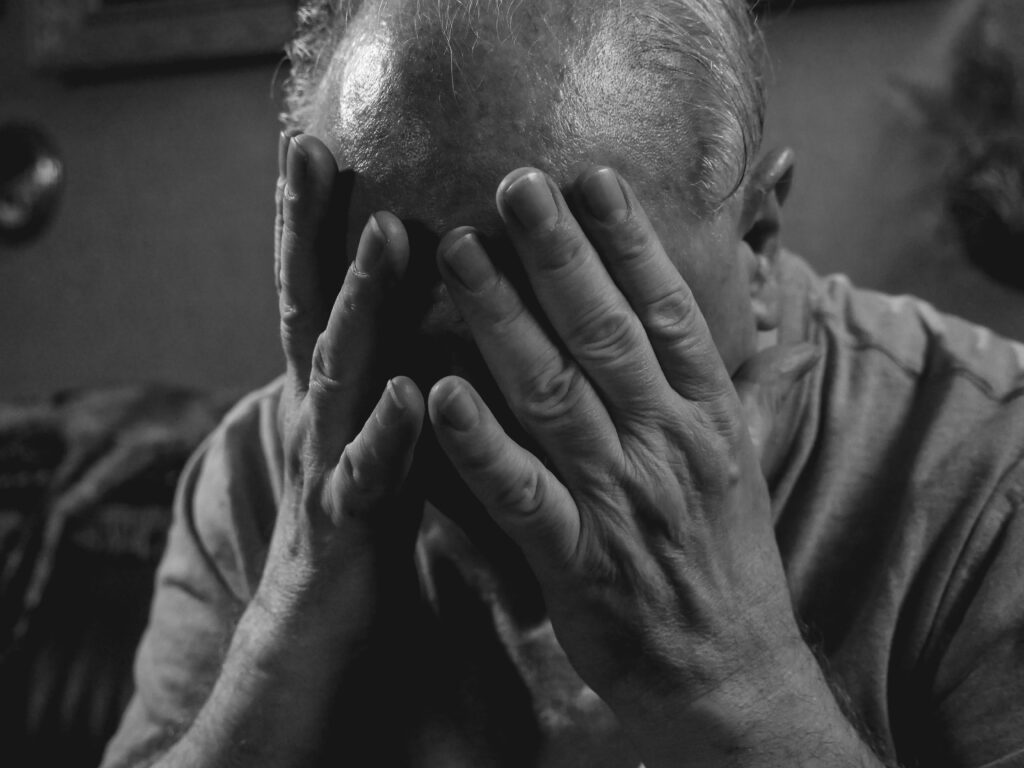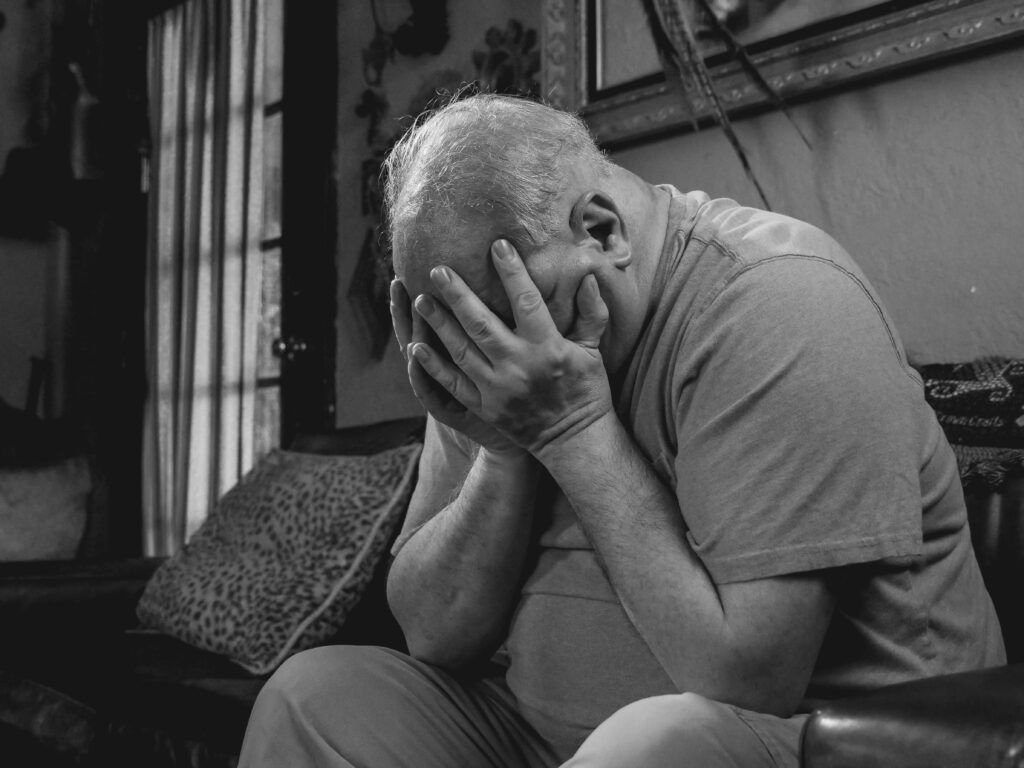Mental Health in Later Life: A Closer Look
Many of today’s older adults grew up when mental health issues were less widely known than they are now. Many resisted talking about concerns like depression and claimed that mental health problems were “weak spots” that could be resolved by changing one’s attitude, where it’s obviously one of the old age problems.
Of course, we are mindful of the significance of excellent physical and mental health to our well-being. By ensuring that healthcare experts treat any possible mental health concerns, you may enhance your quality of life or the life of an older adult you care for.
With that being said, we’ll provide you with all the knowledge you need in this post, including a deeper understanding of older persons’ mental health, how to support them, and how to manage one’s mental health.
Issues in Mental Health of Older Adults: Statistics
Roughly one in five people 65 and older have a mental illness, including dementia. More than 50% of people who live in long-term care facilities experience some form of cognitive impairment.
According to the World Health Organization (WHO), by 2030, there will be twice as many seniors with mental illnesses due to population aging. Depression is the most frequent mental health concern in older individuals. The percentage of people over 60 globally will nearly double from 12% in 2015 to 22% in 2050.
Except for headache disorders, more than 20% of persons aged 60 and older have a mental or neurological problem, and these conditions are responsible for 6.6% of all disabilities (measured as disability-adjusted life years, or DALYs) among those over 60.
These conditions account for 17.4% of years lived with disability in older individuals. Dementia and depression, which afflict around 5% and 7% of the world’s senior population, respectively, are the most prevalent mental and neurological problems in this age range. 3.8% of older adults have anxiety disorders, 1% have drug use issues, and almost a quarter of suicide fatalities occur in those 60 and older.
Seniors frequently have mental health issues, which can include loneliness, anxiety and mood disorders, dementia, and psychosis, among other things.
Continue reading to learn about the numerous mental health issues that seniors are dealing with.
Mental Health Problems that Older Adults Face
Older folks have particular demands in terms of mental health. Among adults over 60, transitional times and emotional occurrences like moving, losing a loved one, and physical changes are frequent.
Here are some of the mental health disorders older adults may suffer from.
1. Depression
Although clinical depression is a widespread issue among older persons, it is not a typical aspect of aging. Fortunately, treatment options are readily available, and they typically result in improvement. These options include medication, therapy, or counseling. With choices for support and therapy, you don’t have to suffer.
Read the fact sheet on “Depression in Older Adults” to learn more about the signs and symptoms of depression.
2. Anxiety
Older adults frequently experience sensations of worry or anxiety. You may develop an anxiety disorder if those sensations become overwhelming and interfere with your daily living. Swings in mood and crippling concern are significant warning flags to look for.
3. Substance use disorder
Substance use disorder—sometimes misconstrued as substance abuse—is a medical condition characterized by the compulsive use of drugs or alcohol, despite the negative consequences that it may cause. It is a chronic and often relapsing condition that can lead to significant impairment in social, occupational, or other areas of functioning. It can range from mild to severe and requires professional treatment for effective management.
4. Bipolar illness
Bipolar disorder is a severe, long-term mental condition affecting mood highs and lows. Serious functional impairment, financial troubles, increased suicidal thoughts, and a general decline in quality of life are common symptoms of the illness.
5. Schizophrenia
Schizophrenia is a severe mental illness in which patients see reality improperly. Hallucinations, severely distorted thinking, delusions, and a general disconnection from reality can all be symptoms of the disease. Schizophrenia in the elderly, particularly in individuals with dementia, can be incapacitating.
One of the main signs of schizophrenia in older adults is delusional thinking, which makes sufferers believe they are being harassed, followed, or in danger.
6. Eating Disorder
The NHS states that having an unhealthy relationship with food may control your life and make you unwell; that is what is referred to as an eating disorder.
An eating disorder is evident when a person persistently overeats or continuously undereats. Someone with an eating disorder will more than likely obsess over their weight and body shape.
Factors of Aging that Can Increase an Older Adult’s Risk of Developing Mental Health Problems
Several factors, including aging, can cause mental health to deteriorate. Among the special risk factors of aging for mental health problems that may manifest later in age are cognitive decline, frailty, and the potential for falls.
Below, we’ve listed a few typical aging-related life changes that might be detrimental to mental health.
Lower Socioeconomic Status
Social scientists refer to various elements under socioeconomic status (SES). It describes a person’s socioeconomic status, amount of education, and place in society generally. In essence, it’s a whole assessment of our performance.
Most social science studies concur that greater rates of mental illness correlate with lower socioeconomic position. Researchers have shown that this connection holds for practically all mental diseases, including depression and more prevalent problems like schizophrenia.
Loss of Functional Abilities
For older adults and their spouses, declining physical and cognitive performance is dangerous to independent life.
Rapid functional reductions might leave people feeling confused and potentially discouraged about continuing to live independently, leaving little opportunity for situational adjustment. Having a support system will lessen the impacts of stress brought on by functional decline.
Increased Probability of Isolation
Health providers should be aware that older persons who feel lonely are more likely to develop depression. For their mental health to be supported, they might require measures to lessen loneliness.
Many mental conditions, including depression, alcoholism, child maltreatment, insomnia, personality disorders, and Alzheimer’s disease, can be brought on by loneliness.
Compared to other demographics, older persons have the greatest prevalence of suicide. Those 85 and older and people 75 to 84 had the greatest rates, respectively.
Another cause is loneliness and social isolation. These medical ailments and diseases have been connected to them:
- weakened immunity
- Alzheimer’s condition
- elevated blood pressure
- obesity
- heart condition
- mental deterioration
A Rise in Adverse Life Events
Several empirical research has shown that poor life experiences increase the chance of depression in the elderly age. For instance, research has consistently demonstrated a strong link between depression in later life and family grief.
These traumatic incidents can have long-lasting negative repercussions, such as the emergence of mental health illnesses, including depression, anxiety, and post-traumatic stress disorder (PTSD).
Possibility of Maltreatment
Psychologically-abused individuals may become unresponsive and withdrawn, worried, or sad. Some caregivers don’t realize their caregiving behavior toward an older adult has moved from being less than optimal to neglectful.
Abuse of older adults may have severe negative effects on their physical and mental health, as well as their financial situation and social standing. These effects might include, for example, bodily harm, early mortality, depression, cognitive decline, financial ruin, and nursing homes placement.
Older Adults’ Warning Signs of Issues In Mental Health
Physical ailments might worsen and take longer to recover from due to depression and other mental health conditions.
These problems can cause difficulties and rehabilitation barriers, making it challenging to do basic tasks like feeding, caring for, and dressing oneself. It’s crucial to remember that having trouble performing simple chores isn’t necessarily an indication of becoming older or the changes in life that come with age.
If you are worried about a loved one’s mental health, keep an eye out for these symptoms to see whether anything is unusual:
- Alteration in sleeping habits
- High levels of tension or persistent worry
- Suicide ideas
- Difficulty expressing joyful sentiments
- Unusual beliefs or actions
- A desire for or reliance on drugs or alcohol
- Feeling defeated or ready to give up
- Chronic pain and aches
- Irritability and anger
Must Read: Breaking The Silence: Unmasking The Signs of Mental Health Problems In Older Adults
Mental Health: Maintaining Wellness for Older Adults
Many older persons have remarkable resilience and insight because they have experienced life transitions and health challenges that necessitated adaptation.
Here is our guide for seniors on enhancing and sustaining healthy mental health and well-being.
- Play mind-tricks: The brain needs stimulation to keep active and prevent cognitive loss as we age, just as the body needs both to be healthy. According to Harvard Health Publications, playing brain games can help you improve your short-term memory, planning abilities, response time, and processing speed.
- Be innovative: The health of the brain depends greatly on creativity. You should finish any projects you may have begun in the past but put off since you need more time to devote yourself to them now. You will have much free time as your calendar only includes a few in-person appointments.
- Schedule a time to work out: Exercising regularly for balance and coordination for at least 15-20 minutes each day is crucial. Calling or texting someone to let them know you’ve exercised is a smart strategy to ensure you remember to do it. Choose a “virtual pal” right now.
- Maintaining Contact: One approach to remaining in contact is learning to use FaceTime, Zoom, or Skype to communicate with new and old acquaintances. As well as online training, there are always persons eager to instruct older adults on utilizing these various programs. Seniors might also keep things straightforward by writing letters or scheduling regular phone calls.
- Owning a Pet: Where it is suitable, animals may help keep elderly active and engaged and provide companionship via their unconditional affection.
According to the CDC, many studies have demonstrated that the relationship between people and their dogs may improve fitness, reduce stress, and promote pleasure.
How to Care for Elderly Parents Suffering from Issues With Mental Health
Many older persons suffer from one or more mental health conditions, which might jeopardize their lives, along with age-related normal physical and cognitive decline.
Here are some tips for taking care of elderly parents who have mental health problems:
- Analyze her underlying psychological state
- Put emotional connection, affirmation, and comfort over logical justifications.
- Explain why rather than justify with
- Make Contact With a Medical Expert
- Residential Care
What Complementary Remedies Work Best For Treating Issues In Mental Health?
Although it may seem alluring, mental health isn’t as simple as popping a pill or getting an injection to make all of one’s issues go away. Treating mental health issues in the aging stage shows that lifestyle changes combined with talk-based and other types of counseling and therapy are the most effective ways to treat mental health diseases, including depression and anxiety.
These are five tried-and-true “natural” methods for treating mental health issues, including anxiety and depression.
Maintaining a healthy lifestyle and exercising
There is no distinction between the mind and the rest of the body. So, one of the finest things anyone can do for their wellness is to exercise and be active. Even though the particular mechanism by which exercise enhances mood is not yet entirely known, the advantages of exercise for mental health are extensively recognized.
Keep in touch and go out more
In the same way, the obesity pandemic captured the public’s attention in recent decades; loneliness may be the next major public health issue.
We all need to connect to be happy. It significantly affects our attitude, and there is compelling evidence that it may impact our physical health and possibly our life span.
Strive to sleep more soundly
Almost all creatures have a common need for sleep. It significantly impacts mental health and well-being and is a reliable indicator of several physical health parameters.
Several studies have shown that getting enough sleep has significant advantages for mental health. Among these include a decreased risk of anxiety and depression, enhanced learning and memory, a decreased risk of bipolar illness, and even a decreased chronic disease-related inflammation.
Stay away from bad coping mechanisms
Everyone has a different coping strategy or coping behavior to manage life’s challenges. These behaviors can occasionally be advantageous and healthful because they reduce long-term stress. Exercise, fishing, walking, getting your hair done, working in the shed, and catching up with friends over coffee are a few examples.
The Use of Technology to Improve Older Adults’ Mental Health
Of course, many medical tests, treatments, and pieces of equipment already utilize cutting-edge technology. Yet, technology, a part of everyday life, also advances mental health. Smartphones, tablets, mobile applications, personal computers, software, and the Internet have positive effects.
These are ways that technology can be used to combat mental health issues.
- Telehealth: Telehealth can provide older adults access to mental health professionals and services from the comfort of their homes. Telehealth can include video conferencing, telephone calls, and messaging. This mode of communication reduces the need for older adults to travel to appointments, which can be particularly beneficial for those with mobility or transportation issues.
- Mental health apps: There are several mental health apps available that can help older adults manage their mental health. These apps can include mood tracking, meditation, and mindfulness exercises, and cognitive-behavioral therapy. These apps can be particularly useful for older adults who may have limited access to mental health services.
- Social media: Social media can help older adults stay connected with friends and family and reduce feelings of loneliness and isolation. Many social media platforms also have groups and communities that focus on mental health, which can provide support and resources.
- Virtual reality: Virtual reality technology can be used to create immersive experiences that can help older adults manage anxiety and depression. For example, virtual reality exposure therapy has been shown to be effective in treating post-traumatic stress disorder (PTSD) in older adults.
- Cognitive training programs: Cognitive training programs can help older adults maintain cognitive function and prevent or slow cognitive decline. These programs can include games and activities that are designed to improve memory, attention, and problem-solving skills.
Mental Health and Social Support Resources for Older Adults
The importance of mental health as we age grows, especially when older persons may find themselves living alone or in unfamiliar settings. Conditions that may influence senior mental health have been further harmed by COVID-19’s increased isolation and stay-at-home directives.
The resources listed below might be useful if you need help figuring out where to learn more about mental health.
- Administration for Community Living (ACL)
- Health in Aging
- National Council on Aging (NCOA)
- National Institute of Mental Health (NIMH)
- Behavioral Health Treatment Services Locator
- National Mental Health Consumers Self-Help Clearinghouse
Anxiety and Stress
Health-related support groups
Via groups that concentrate on that health issue, you may frequently discover support options if you live with a particular health problem. This can make it easier for you to contact people experiencing similar things. Start your search with these popular ones:
- Defeat Diabetes Foundation
- American Heart Association
- Mental Health America
- Alzheimer’s Association
- Arthritis Foundation
Wrap Up!
You may already know that mental illness doesn’t always show itself in a recognized way. You won’t always be able to tell whose pain is what. Several life changes come with aging. Some of these changes are interesting and significant, while others are challenging.
Seniors may endure emotional or social challenges that they haven’t previously, such as loneliness, health issues, or the death of a spouse. Keeping your mental health safe as you age is essential.
Seniors may be more susceptible to acquiring mental health illnesses, in addition to frequently encountering these trying circumstances. Senior mental health significantly affects one’s entire quality of life. Therefore it’s critical to take charge of mentally retraining yourself.






